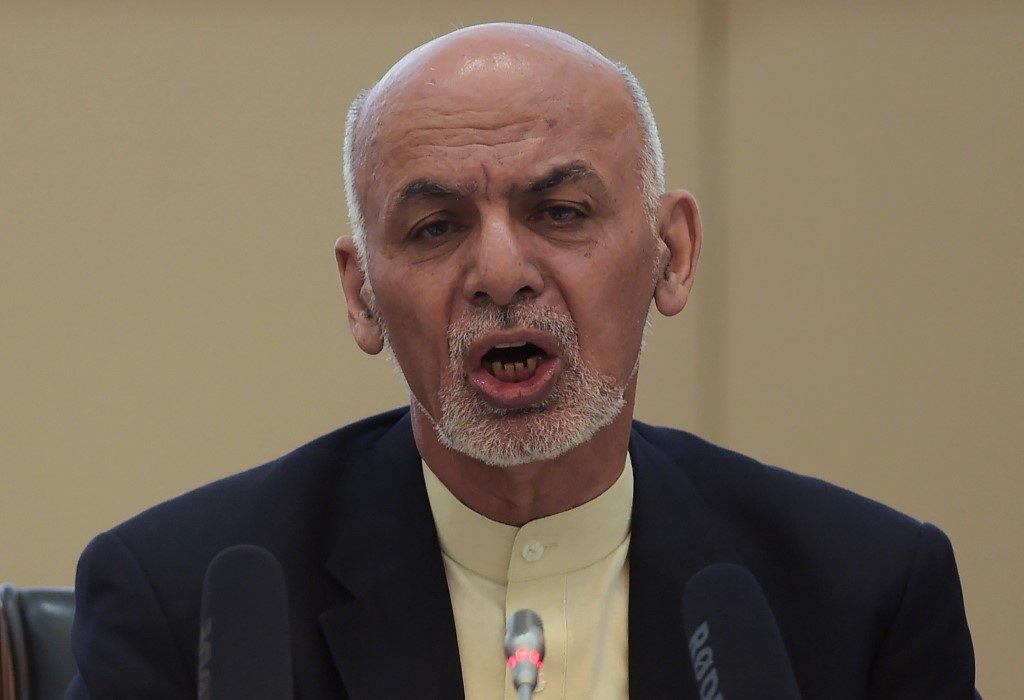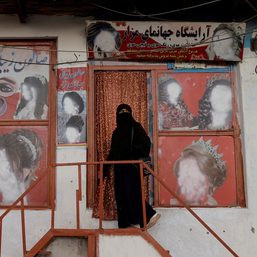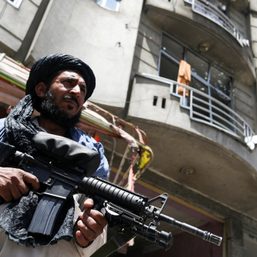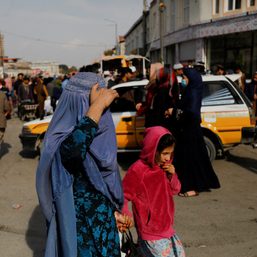SUMMARY
This is AI generated summarization, which may have errors. For context, always refer to the full article.

Long-delayed peace talks between the Afghan government and the Taliban appeared back on track Tuesday, July 28, after President Ashraf Ghani signaled negotiations could start next week and the two foes agreed a three-day ceasefire.
The truce would start Friday, July 31, marking the first day of the Muslim festival of Eid al-Adha, and continue for the duration of the religious holiday.
The Taliban proposed the ceasefire after Ghani described progress in a contentious prisoner exchange that has thrown up numerous hurdles to talks starting.
“To demonstrate the government’s commitment to peace, the Islamic Republic will soon complete the release of 5,000 Taliban prisoners,” Ghani told officials, referring to the number of insurgent inmates the government originally pledged to free under the auspices of a US-Taliban deal in February.
“With this action, we look forward to the start of direct negotiations with the Taliban in a week’s time,” Ghani added.
Ghani’s spokesman Sediq Sediqqi told Agence France-Presse that Kabul would observe the ceasefire, but cautioned it did not go far enough.
“The people of Afghanistan demand a lasting ceasefire and the start of direct talks between the Taliban and the government of Afghanistan,” Sediqqi said.
Kabul’s readiness to start talks comes after the Taliban last week indicated they too are prepared to negotiate after the Eid holidays.
In a statement, Taliban military spokesman Zabihullah Mujahid ordered insurgents “to refrain from carrying out any operation against the enemy during the 3 days and nights of Eid al-Adha so…our countrymen would spend the Eid with confidence and joy.”
But any attack “by the enemy” would be met with force, he added.
The truce is only the third official respite in Afghanistan’s conflict since the war started in 2001, with other ceasefires in June 2018 and May this year to mark the end of the holy month of Ramadan.
The truces prompted widespread relief across Afghanistan but were short-lived, with the insurgents returning to the battlefields straight afterwards to resume near-daily attacks.
3,500 Afghan troops killed
Under the deal signed by the US and the Taliban on February 29, all foreign forces are supposed to quit Afghanistan in the coming months in return for several insurgent security pledges.
The deal also stated the Taliban and Kabul should start direct peace talks on March 10, following the completion of the prisoner swap.
But that date passed amid political disarray in Kabul and disagreements over the prisoner exchange, with Afghan authorities saying some of the released Taliban inmates were returning to the battlefield.
Highlighting the toll on civilian and military forces in the months since the deal, Ghani said more than 3,500 Afghan troops had been killed.
He said 775 civilians had also been killed and another 1609 wounded since the deal.
The UN Assistance Mission in Afghanistan has blamed the Taliban for almost half of civilian casualties during the first half of 2020, with less than one-quarter blamed on Afghan forces.
The violence, which has diverted vital resources and attention from the deadly coronavirus pandemic that has ravaged the country, has also left hundreds of children dead and wounded.
Earlier Tuesday, Taliban leader Haibatullah Akhundzada slammed the US military for recent air strikes against the militants that were launched in response to insurgent attacks.
He said “frequent drone strikes, bombardments, raids and artillery attacks on unjustifiable grounds” could create obstacles in ending America’s longest war.
The US military did not immediately respond. – Rappler.com
Add a comment
How does this make you feel?





There are no comments yet. Add your comment to start the conversation.